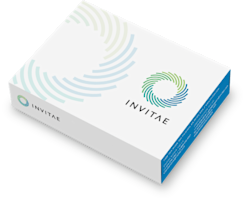
Invitae 3-Methylcrotonyl-CoA Carboxylase Panel
Test code: 06192 •
Test description
The Invitae 3-Methylcrotonyl-CoA Carboxyalse Deficiency Panel analyzes the two genes that are associated with 3-Methylcrotonyl-CoA Carboxyalse (3MCC) deficiency. This test is useful for the diagnosis of patients who are suspected to have 3MCC deficiency according to clinical symptoms, biochemical findings, or abnormal newborn-screening results.
Ordering information
Turnaround time:
10–21 calendar days (14 days on average)New York approved:
YesPreferred specimen:
3mL whole blood in a purple-top EDTA tube (K2EDTA or K3EDTA)Alternate specimens:
Saliva, buccal swab, and gDNA are also accepted.Learn more about specimen requirementsRequest a specimen collection kitClinical description and sensitivity
Clinical description:
Patients with 3MCC deficiency show a wide range of phenotypic severity, from asymptomatic to more severe. Traditionally, diagnosis relied on ascertainment of symptomatic patients. A wide range of symptoms have been reported, including developmental delay, intellectual disability, seizures, hypotonia, hypoglycemia, metabolic acidosis, ketosis, Reye syndrome, hyperammonemia, secondary carnitine depletion, and even coma or death; however, with the advent of expanded newborn screening, it is now recognized that the vast majority (>90%) of diagnosed individuals are asymptomatic, despite the presence of the characteristic biochemical abnormalities. No phenotype-genotype correlations exist, and recent studies have suggested that symptoms in at least some clinically affected individuals may have an alternative underlying cause.
Patients with 3MCC deficiency typically have biochemical laboratory findings, including elevations of 3-hydroxyisovaleric acid and 3-methylcrotonylglycine on urine organic acid analysis; and elevation of 3-hydroxyisovalerylcarnitine (C5-OH) on newborn screening or plasma acylcarnitine analysis. Asymptomatic mothers may also be diagnosed due to elevated C5-OH in their healthy babies’ newborn-screening result.
Assay information
Invitae is a College of American Pathologists (CAP)-accredited and Clinical Laboratory Improvement Amendments (CLIA)-certified clinical diagnostic laboratory performing full-gene sequencing and deletion/duplication analysis using next-generation sequencing technology (NGS).
Our sequence analysis covers clinically important regions of each gene, including coding exons and 10 to 20 base pairs of adjacent intronic sequence on either side of the coding exons in the transcript listed below, depending on the specific gene or test. In addition, the analysis covers select non-coding variants. Any variants that fall outside these regions are not analyzed. Any limitations in the analysis of these genes will be listed on the report. Contact client services with any questions.
Based on validation study results, this assay achieves >99% analytical sensitivity and specificity for single nucleotide variants, insertions and deletions <15bp in length, and exon-level deletions and duplications. Invitae's methods also detect insertions and deletions larger than 15bp but smaller than a full exon but sensitivity for these may be marginally reduced. Invitae’s deletion/duplication analysis determines copy number at a single exon resolution at virtually all targeted exons. However, in rare situations, single-exon copy number events may not be analyzed due to inherent sequence properties or isolated reduction in data quality. Certain types of variants, such as structural rearrangements (e.g. inversions, gene conversion events, translocations, etc.) or variants embedded in sequence with complex architecture (e.g. short tandem repeats or segmental duplications), may not be detected. Additionally, it may not be possible to fully resolve certain details about variants, such as mosaicism, phasing, or mapping ambiguity. Unless explicitly guaranteed, sequence changes in the promoter, non-coding exons, and other non-coding regions are not covered by this assay. Please consult the test definition on our website for details regarding regions or types of variants that are covered or excluded for this test. This report reflects the analysis of an extracted genomic DNA sample. In very rare cases, (circulating hematolymphoid neoplasm, bone marrow transplant, recent blood transfusion) the analyzed DNA may not represent the patient's constitutional genome.
You can customize this test by clicking genes to remove them.
Primary panel
Question about billing?
Find answers